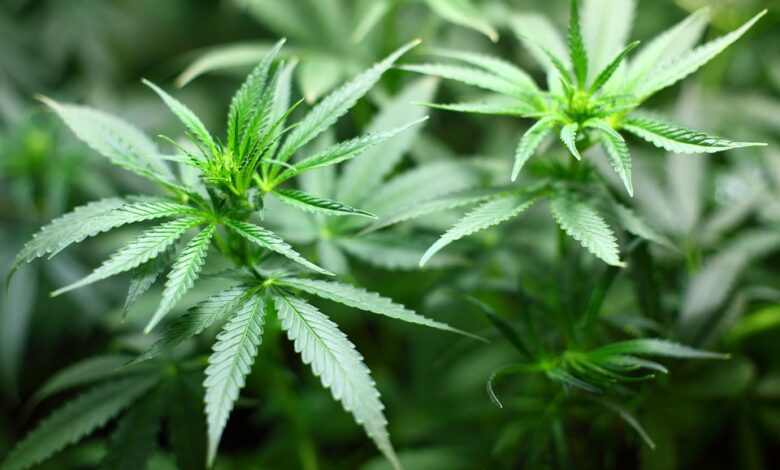Marijuana and Mental Health: Examining the Connection Between Cannabis and Wellness

Marijuana, also known as cannabis, has been a controversial topic for many years. It has been the subject of heated debates regarding its potential benefits and drawbacks, particularly when it comes to mental health. While some individuals believe that marijuana can have positive effects on mental wellness, others argue that its use can lead to adverse mental health outcomes. In this article, we will examine the connection between marijuana and mental health, exploring the potential benefits and risks associated with its use.
Understanding Marijuana and Mental Health
Before delving into the connection between marijuana and mental health, it is important to understand how marijuana affects the brain. Marijuana contains compounds called cannabinoids, the most well-known of which are tetrahydrocannabinol (THC) and cannabidiol (CBD). THC is responsible for the psychoactive effects of marijuana, while CBD is non-psychoactive and has been studied for its potential therapeutic properties.
When marijuana is consumed, THC interacts with the brain’s endocannabinoid system, which plays a crucial role in regulating various physiological and cognitive processes. This interaction can lead to changes in mood, perception, and cognition, which are the basis of marijuana’s psychoactive effects.
Potential Benefits of Marijuana for Mental Health
Several studies have suggested that marijuana may have potential benefits for mental health. One of the most well-known uses of marijuana is for the management of chronic pain, and it has been shown to be effective in relieving symptoms of conditions such as multiple sclerosis, arthritis, and neuropathic pain. In addition to its analgesic properties, marijuana has also been studied for its potential effects on mental health.
Some research has indicated that marijuana may have anti-anxiety and antidepressant properties. A 2018 study published in the Journal of Affective Disorders found that CBD, one of the cannabinoids found in marijuana, may have rapid and sustained antidepressant effects in animal models. Another study published in the Journal of Psychopharmacology in 2016 suggested that CBD may have anxiolytic effects and could be beneficial for individuals with social anxiety disorder.
Moreover, marijuana has been studied for its potential use in the treatment of post-traumatic stress disorder (PTSD). According to a review published in the Journal of Affective Disorders in 2019, several studies have suggested that marijuana use may be associated with reductions in PTSD symptoms among individuals who use it to self-medicate.
Risks Associated with Marijuana Use and Mental Health
While marijuana may have potential benefits for mental health, it is also associated with certain risks. One of the most well-documented risks of marijuana use is the potential for the development of psychosis and schizophrenia, particularly among individuals who have a genetic predisposition to these conditions. A 2019 study published in JAMA Psychiatry found that frequent marijuana use during adolescence was associated with an increased risk of developing psychosis later in life.
Additionally, the use of marijuana during adolescence has been linked to cognitive impairments and a decline in IQ. A longitudinal study published in the Proceedings of the National Academy of Sciences in 2012 found that individuals who initiated marijuana use during adolescence and continued to use it into adulthood experienced a decline in IQ by the age of 38.
Moreover, despite the potential for CBD to have anti-anxiety effects, the use of marijuana containing high levels of THC has been associated with an increased risk of anxiety and panic attacks. A review published in the Journal of Affective Disorders in 2014 found that high-THC cannabis use was associated with an increased risk of developing anxiety disorders.
Frequently Asked Questions
1. Is marijuana effective for the treatment of depression and anxiety?
While some studies have suggested that CBD, a compound found in marijuana, may have antidepressant and anxiolytic effects, more research is needed to determine the efficacy and safety of marijuana for the treatment of depression and anxiety.
2. What are the potential risks of marijuana use for mental health?
The potential risks of marijuana use for mental health include an increased risk of developing psychosis and schizophrenia, cognitive impairments, and an elevated risk of anxiety and panic attacks.
3. Can marijuana be used to treat PTSD?
Some studies have suggested that marijuana use may be associated with reductions in PTSD symptoms among individuals who use it to self-medicate. However, more research is needed to determine the potential benefits and risks of marijuana for the treatment of PTSD.
4. Is marijuana addictive?
Yes, marijuana can be addictive, particularly when used regularly and in high doses. The risk of addiction is higher among individuals who begin using marijuana during adolescence.
In conclusion, the connection between marijuana and mental health is complex, and more research is needed to fully understand the potential benefits and risks associated with its use. While some studies have suggested that marijuana may have therapeutic potential for conditions such as chronic pain, depression, anxiety, and PTSD, it is also associated with certain risks such as the development of psychosis, cognitive impairments, and addiction. Individuals considering the use of marijuana for mental health purposes should consult with a healthcare professional to discuss the potential benefits and risks and make an informed decision.
[ad_2]




